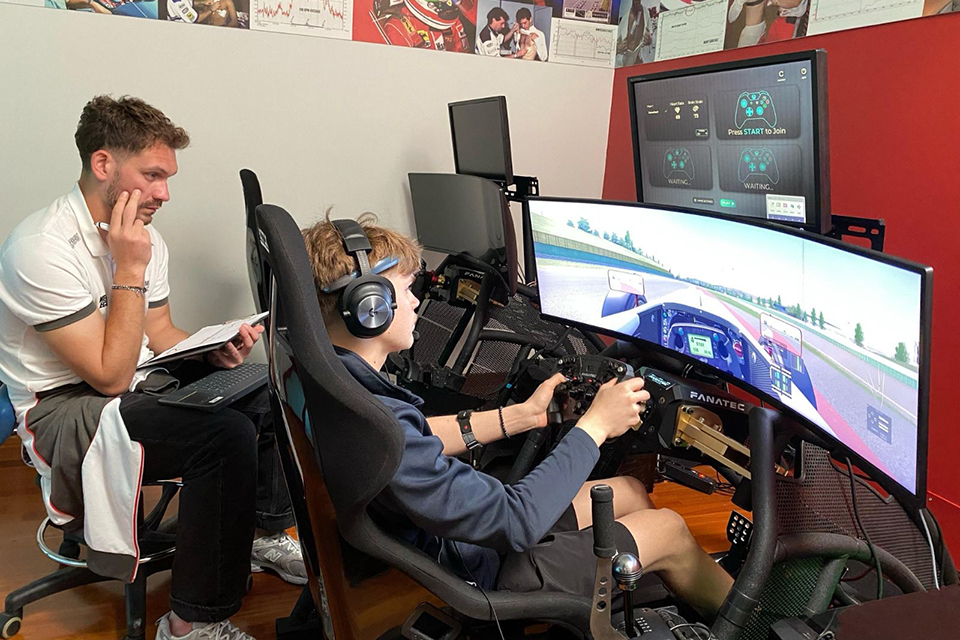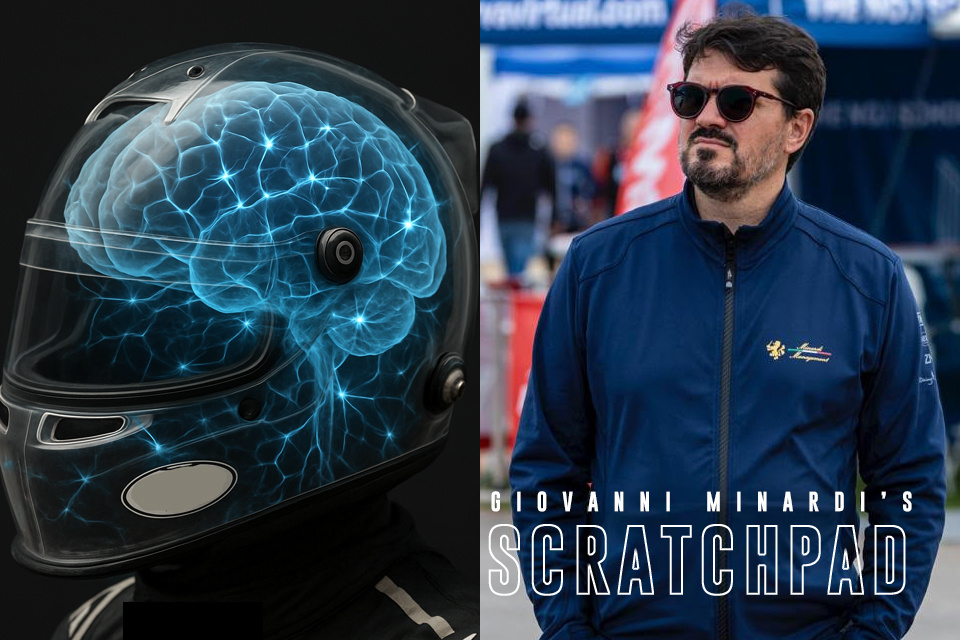Motorsport is primarily a ‘mindset-dependent’ sport, and we’re not just talking about having a “winning mindset.” The way you approach every phase of activity on and off track, the mental preparation, and achieving psychophysical balance play a primary role in the life of an athlete, especially if they are young.
Junior motorsport, especially karting, has changed a lot. The high number of participants in the Mini categories, but especially the great expectations around them, have increased pressure on the kids. Which specific changes stand out the most?
The first obvious change is the technical level rising even in the Mini categories: children of 9-10 years old train with schedules and tests comparable to professional drivers. This leads to rapid skill growth but also early exposure to pressure from results. The second aspect is the economic and commercial component becoming more present: families, teams, and sponsors invest heavily and expect returns, generating further expectations on the young driver. Finally, social media visibility and instant communication amplify every performance, positive or negative, creating a cycle of judgments and expectations that, if not well managed, can weigh on mental serenity. For this reason today, more than ever, a junior driver must work not only on driving technique but also on resilience, emotional management, and mental preparation—to transform pressure into a motivator for growth, not an obstacle.
Recently, there has been controversy about a 12-year-old Chinese swimmer at the World Championships; in karting, this has been happening for years without much fuss. Are we very ‘advanced,’ or are we actually the ones who need to ‘get a grip’? Where is the boundary line?
The swimmer’s case spotlighted an issue long present in karting: very young participation at very high levels. In our sport, this happens without much controversy because karting is historically the primary school of motorsport, and early entry is seen as a natural part of the pathway. However, just because it is “normal” doesn’t mean it shouldn’t be carefully evaluated. I believe the boundary lies in balance between sporting growth and the overall wellbeing of the young person. Anticipating formative steps too soon risks burning physical and mental energy or shifting focus solely onto results while neglecting personal development.
So, more than asking if we are “advanced” or need to “get a grip,” we should ensure every young talent follows a calibrated path: competitive but sustainable in the long run. True victory is arriving ready and motivated when it really counts, not necessarily as early as possible.
Let’s get to the core: given today’s context, how important is good mental preparation, and above all: what does mental preparation mean to you for a driver?
Today, mental preparation matters as much as—if not more than—technical preparation. In a context where pressure, quick decision-making, and error management are daily realities, the driver who can maintain clarity has a huge advantage. For me, mental preparation is not just “positive thinking” or having a winning mindset. It means training the mind as you train the body. It means developing concentration, stress management, resilience after mistakes or bad races, and the discipline to stay focused on long-term goals even when immediate results don’t come.
It also means working on self-awareness: knowing strengths and areas for improvement so that every situation—even the toughest—becomes an opportunity for growth. On track and in life.
Karting and formula racing are also very demanding physically. How do you reconcile physical and psychological preparation? We know for the body it’s gym and lots of track time, but what about the mind?
Karting and formula racing demand strength, endurance, and reactivity, so gym and lots of track time are fundamental.
But the mind, just like the body, must be trained methodically. For the mind, the “gym” consists of exercises on concentration, visualization, breath control, and mental simulations of race situations. It may include sessions with mental coaches, mindfulness techniques to maintain calm and focus, and even pre-race routines to get into the ideal mental state. The key point is that body and mind are not separate worlds: a clear mind improves physical performance, and a prepared body supports concentration. Balance comes from training them together, not in parallel.

The presence of psychophysical preparation professionals allows the athlete to manage stress throughout all phases of Racing
It’s common to see more and more “driver/mental coaches” under the tents, with dads taking a step back. Describe the process and what evolution you’ve noticed in recent years. In recent years, there has been an important cultural shift: the figure of the dad as “team boss” or “all-around coach” is giving way to specialized professionals like driver coaches and mental coaches.
The process starts from testing sessions: the driver coach analyzes telemetry, observes on track, identifies technical improvement areas, and turns them into clear goals for the driver. At the same time, the mental coach works on stress management, concentration, and race approach so the driver arrives on track equipped with tangible tools, not just motivation. This evolution has several advantages:
It separates the parent’s role from that of the coach, reducing emotional conflicts.
Provides professional technical and psychological support, reflecting high-level motorsport dynamics.
Helps the driver develop autonomy and self-awareness, essential qualities for sporting growth.
In summary, today the focus is increasingly on a “360-degree” preparation where the family remains an emotional pillar, but technical and mental parts are entrusted to those with direct track and competition experience.
The world of F1 is still searching unsuccessfully for the next Max Verstappen. Although Jos has faced much criticism, Max Verstappen is a product of Jos Verstappen—in both good and bad ways. Does forming a mentally strong driver require a heavy hand? Do you believe this has consequences?
Max Verstappen’s case is unique: the exceptional talent was shaped through an intense process, with a father who pushed him to the limits at every stage.
On the positive side, this created a driver who is tough, able to handle enormous pressure, and face any situation with rare determination. But a “heavy hand” doesn’t automatically mean “winning recipe.” Every athlete is different: some respond well to constant pressure, others risk burnout or emotional scars.
The key is to challenge the driver so they learn to manage difficulties, training resilience without compromising confidence and passion.
Mental formation means both challenging and giving responsibility, but also providing tools and support to face obstacles. Push, yes—but in a calibrated way, because excessive pressure can leave marks even years later, even at the peak of a career.
The above content is excerpted from: Vroomkart International/Published: 14 August 2025
Post time: Aug-25-2025

